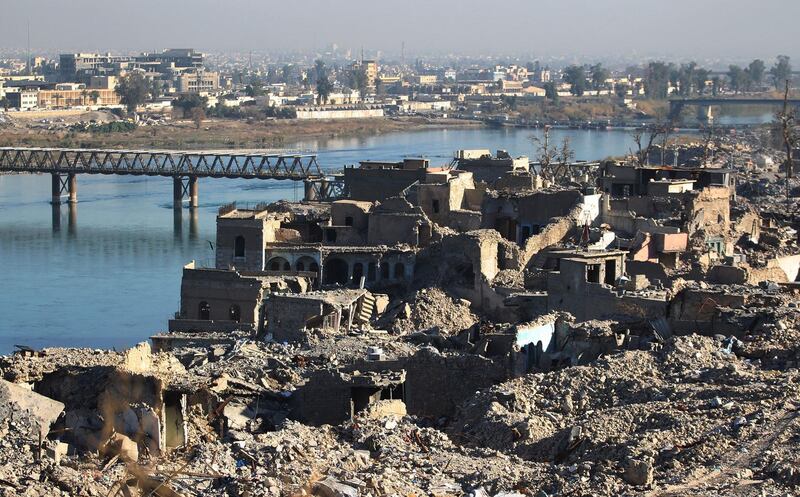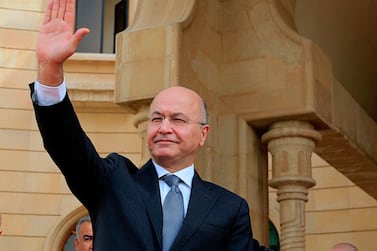While war-torn Iraq has turned a page after battling ISIS and a recovery in oil prices from a three-year slump provides impetus to move forward, the country still needs to address economic challenges, according to the International Monetary Fund.
The near-term vulnerabilities in Iraq subsided last year with a build-up in central bank reserves but the postwar reconstruction is limited and control on spending will curtail the country's economic growth markedly, said the IMF.
"The end of the war with ISIS and a rebound in oil prices provide an opportunity to rebuild the country and address long-standing socio-economic needs. However, the challenges to achieving these objectives are formidable," said IMF's Gavin Gray, who led a consultation to the Iraqi government. "Combating corruption is critical to promote the effectiveness of public institutions and to support private-sector investment and job creation."
Fiscal deficits in the country are expected to rise over the medium-term and in absence of policy changes, it will be hard to sustain capital spending, the Washington-based lender said, following its annual assessment with Iraqi authorities. The country's tight control over spending, particularly wages, and phased measures to boost non-oil revenue, however, would allow to build fiscal buffers.
Non-oil growth is forecast to increase to 5.4 per cent in 2019. However, fiscal deficits will require financing that may crowd out the private sector or erode central bank reserves. In these circumstances, it would be hard to sustain capital spending, and growth would slow, Mr Gray added.
Iraqi President Barham Salih in February ratified the country's $111.8 billion budget for 2019, its largest with a 27 per cent increase over 2018. The bill calls for a rise in spending of $24bn and a deficit of $22.6bn during the year.
Some politicians in Baghdad said the budget fails to deploy sufficient funds for reconstruction. The IMF has calculated that Iraq would need more than $88bn to rebuild areas devastated by the war against ISIS. Nearly half of the spending in 2019 will go towards public salaries including to the Kurdistan Region of Iraq, which lawmakers said could help ease tensions between Baghdad and Erbil.
“Policy changes and structural reforms, including to improve governance, are therefore essential to maintain medium-term sustainability and lay the foundations for inclusive growth,” Mr Gray said.
Fiscal policy should aim to scale up public investment gradually while building buffers, the IMF said. To make space for this, IMF has recommended budgetary savings of around 9 per cent of the country's gross domestic product over the medium-term by controlling spending, particularly public sector wages, and phased measures to boost non-oil revenue. Setting ceilings on expenditure from the 2020 budget would strengthen the fiscal framework's capacity to support higher capital spending and to adapt to oil price shocks.
Containing public sector wages is the key reform needed in Iraq, according to the IMF, along with policies to overhaul the electricity sector. "It would be important to ensure that the poor and most vulnerable are protected throughout this reform," the lender said.
Within the financial sector, a robust plan to restructure large public banks coupled with enhanced supervision is essential to secure financial stability and will help promote financial development and inclusion, according to the IMF.
“Strengthening anti-money laundering and countering financing terrorism controls and oversight will help prevent Iraq’s financial sector from being misused for the laundering of criminal proceeds and terrorist financing.”








